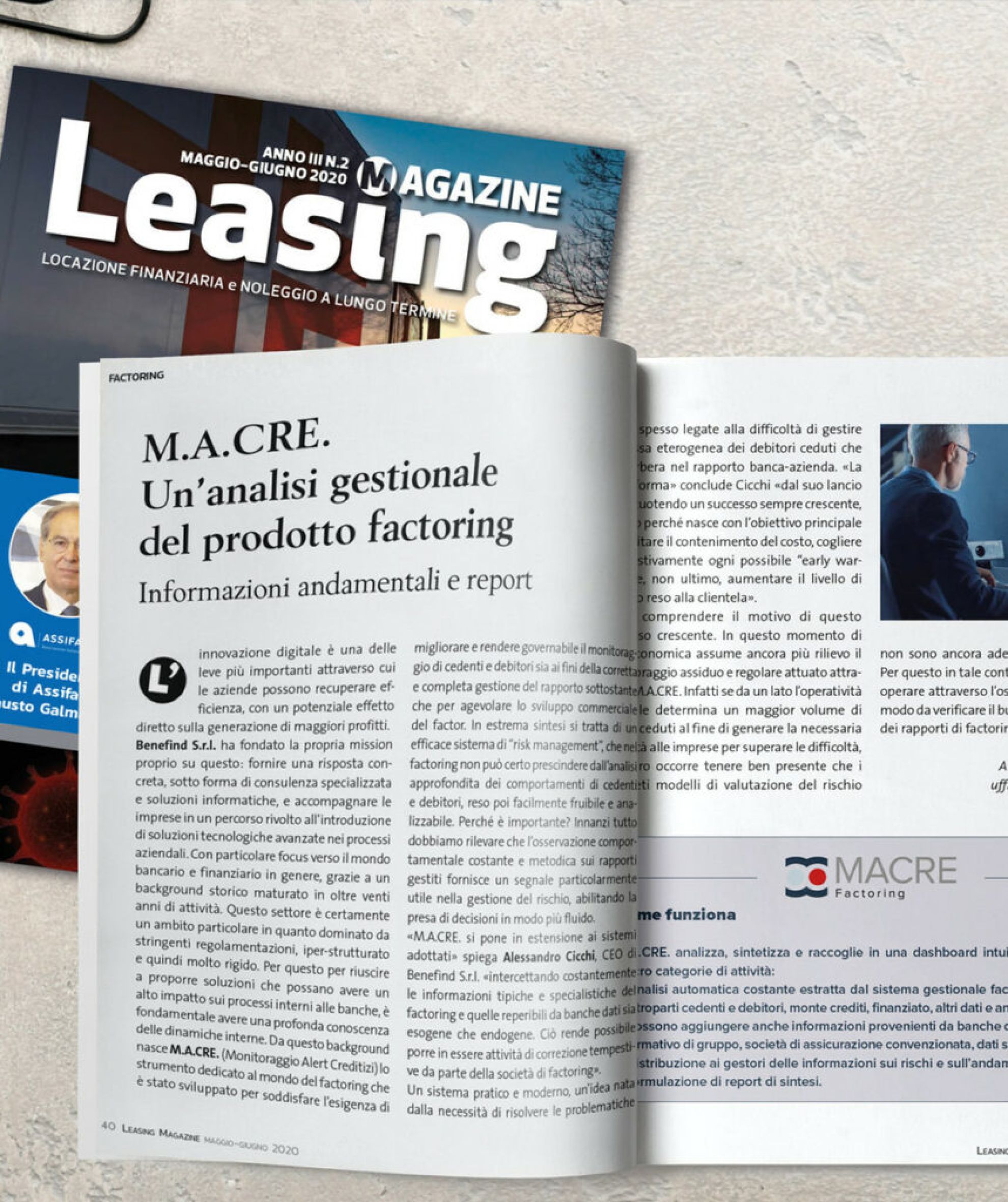M.A.CRE. Management analysis of the factoring product
Digital innovation is one of the most important levers through which companies can recover efficiency, with a potential direct effect on the generation of greater profits.
The specific mission of Benefind S.r.l. is to provide a concrete response in the form of specialized consultancy and IT solutions, while supporting companies in integrating advanced technological solutions into their business processes with a special focus on the banking and financial world in general, thanks to a historical background gained over twenty years in business.
This sector is peculiar, dominated by stringent regulations, hyper-structured and as such, extremely rigid. For this reason, devising solutions that may strongly impact the internal processes of banking institutions entails a deep understanding of the internal dynamics involved.
This is the background from which M.A.CRE (Credit Alert Monitoring) stems. Designed for the factoring industry, the tool aims at meeting the need for improvement and make the assignor / debtor monitoring process more manageable and likewise, enable the underlying relationship to be dealt with in the most effective manner while facilitating the factor’s commercial development.
In a nutshell, it is an effective “risk management” system, which, in the factoring industry, certainly cannot prescind from an in-depth analysis of assignor / debtor behaviour, which becomes easily usable and analyzable.
Why is it so important? First of all, we must point out that by constantly and methodically monitoring the relationships in question, particular insight can be gained in risk management, thus enabling a more fluid decision – making process.
“M.A.CRE. acts as an extension of the systems adopted – explains Alessandro Cicchi, CEO of Benefind S.r.l. – so as to constantly intercept typical and specialized factoring-related information as well as information that can be retrieved from both exogenous and endogenous databases. This allows the factoring company to carry out timely correction activities “.
A practical and modern system that stems from the need to solve issues frequently related to the difficulty in managing the heterogeneous mass of assigned debtors, with a consequent impact on the bank-company relationship. “The platform – concludes Cicchi – has been enjoying increasing success since its launch, mainly because it was created with the primary objective of facilitating cost containment, promptly detecting any ” early warning” signs and last but not least, increasing the level of service delivered to the clientele”.
It is easy to understand the reason for this growing success: in this moment of economic crisis, the constant and regular monitoring process attainable through M.A.CRE takes on even more importance. In fact, if on the one hand natural operativity determines a greater volume of assigned credits in order to generate the necessary liquidity to enable companies to overcome difficulties, on the other hand, it should be borne in mind that customary risk assessment models are not yet suitable for the new scenarios.
For this reason, in such context constant observation proves essential in order to verify the good performance or otherwise of the factoring relationships in their entirety.
Published in Leasing Magazine – 3rd annual edition No. 2 May-June 2020 issue



